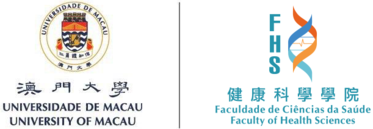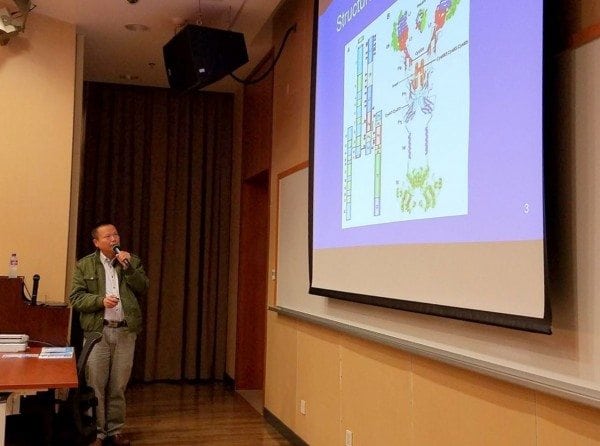| Talk title | Interactions of glutamate and IGF-1 receptor signaling and their underlying mechanisms |
| Speaker | Prof. Wenhua ZHENG Associate Professor, Faculty of Health Sciences, University of Macau |
| Date & Time | 17 February 2017 (Friday) 15:00-16:00 |
| Venue | Room G004, E12 Building (University of Macau) |
| Abstract |
Glutamate-induced neurotoxicity is involved in various neuronal disorders like Alzheimer’s disease. However, the interrelationships between glutamate and growth receptor signaling is not known. We found that glutamate attenuated the trophic effect of IGF-1 and IGF-1 induced tyrosine phosphorylation of IGF-1R in primary cultured hippocampal neurons and cortical neurons via MNDA receptors (JBC, 2009). These were also seen in control and ischemia brain. Using specific antagonists and siRNA to downregulate individual NMDAR subunits, we found that the activation of NR2B-containing NMDARs was critical for glutamate to inhibit IGF-1 signaling. In addition, inhibition of nNOS blocked the attenuating effect of glutamate on IGF-1 signaling. Nitric oxide donors, L-arginine and SNAP, inhibited the tyrosine phosphorylation of the IGF-1 receptor (IGF-1R) and its downstream signaling. In nNOS null mice (nNOS-/-), SNAP impaired IGF-1 signaling but glutamate and L-arginine had no effect. These findings indicate that the glutamate-induced attenuation of IGF-1 signaling is mediated by NR2B-containing NMDARs and the nNOS pathway. Our study also suggests a novel mechanism of altering neurotrophic factor signaling by the activation of NMDARs Supported by National Natural Science Fund of China (31371088) and FDCT (021/2015/A1), and MRYGs at University of Macau. |


